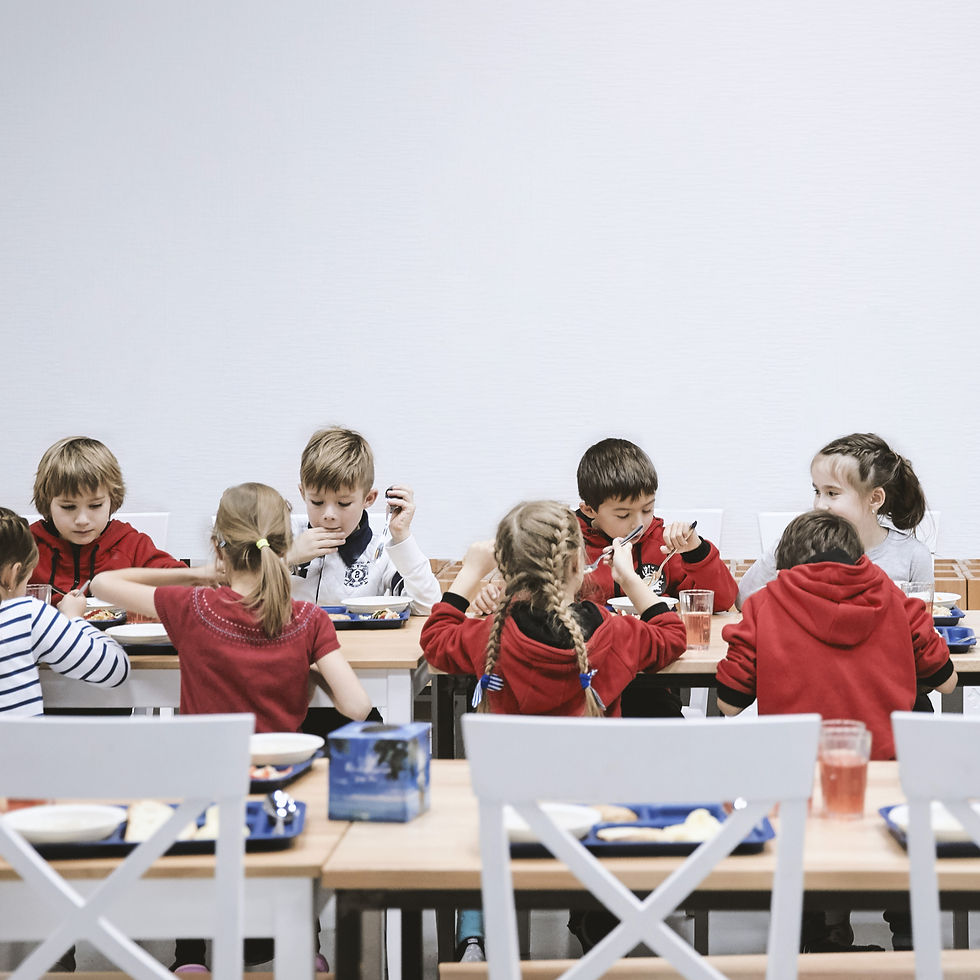Sometimes Progress Requires Discomfort
- Audrey Sanchez

- Aug 28, 2018
- 3 min read
Recently, I’ve had the privilege of meeting with the food service directors — and often their contracted food service company — of numerous major school districts. I mean it when I say, "privilege" because I do not envy their jobs and I'm grateful for the commitment most have to our children. Recognizing the enormous responsibility inherent in their jobs is something I do not take lightly, and something they rarely hear. I mean, when's the last time you heard glowing reviews of a traditional school lunch? The work is hard and the accolades are few.
Even after the most tense conversations, I’ve left each meeting proud of the work we’re doing, and excited to move the needle toward healthier menus. Most conversations have been relatively pleasant and I’ve learned a lot from the professionals around the table. But, to be honest, I’ve also left each meeting with a lingering frustration.
Fundamentally, I believe every person is doing the best they can with the knowledge and skills they have. I also believe — as a former educator — that learning new information and acquiring new skills is almost always a positive thing. Having coached teachers for over 5 years, I know what it’s like to grapple with difficult ideas, be pushed to the limit, and put the good of others ahead of our own defensiveness when confronted with the challenge of change.
I believe this is why it’s so frustrating to spend time persuading food service professionals and dedicated school staff that investing in children’s health, even when it's hard and new, is worthwhile.
Worth reevaluating current practices.
Worth trying new things.
Worth throwing out preconceived notions or excuses.
Worth learning from each other.
Worth keeping an open mind.
At Balanced, I believe our ask of school districts and other institutions is pretty reasonable: improve the healthfulness of lunch menus by replacing a portion or two of foods high in cholesterol, saturated fat, and sodium with plants. In short, more fruits, vegetables, and plant-proteins. Fewer chicken nuggets, meatball subs, and corn dogs.
For most school districts it would be as simple as swapping one animal-based entree each week with a plant-based alternative. Bean burrito instead of beef. Tofu teriyaki instead of chicken. Vegetable quesadilla, lentil marinara, or a veggie burger once in awhile (you get the idea).
Still, despite being armed with science, stories, community support and even a toolkit designed expressly to help the food service team every step of the way, our team is usually met with a list of excuses and more often than not, hostility.
The thing is: I get it, I really do. It is not easy or pleasant to have an unknown someone — or organization — asking you to do your job differently and change something that’s ostensibly working just fine. I understand how that could make some adults feel angry, hostile, or defensive. And I could say “but that’s my job” to justify why I continue to advocate so doggedly despite the resistance, but that wouldn’t be true. Although it *is* my job, more than that, it’s the right thing to do.
My loyalty is — and will always be — to the children impacted by unhealthy food.
To be clear, my loyalty to our children is not a blind attack on adults. It does mean, however, that I’m prepared to hold the institutions that serve our families accountable until meaningful change occurs, even if/when it’s uncomfortable. As much as I want to acquiesce and have a more uneventful professional life, I can’t. The future health and wellbeing of our children is more important to me than the temporary discomfort of a difficult conversation.
My goal has never been to antagonize adults or call into question the abilities of food service professionals. It is because of my deep belief in their professionalism and potential that I hold them to such high standards. And it is because the stakes are so high I refuse to demand less.
The way I see it, we are in partnership with one another, not opposition. The amazing thing about partnerships though, is that their primary role in our lives should be to make us better. True partnerships require us to be our best selves, and when we’re not, they help us improve.
So as I enter even more conversations with major decision makers over the next few weeks, I enter them with an open mind, high expectations, and a sense of hopefulness. Yes, change is hard, uncomfortable and annoying even — but the very real health of children depends on us not backing down.
And what we can achieve by embracing the challenge together is worth it.


